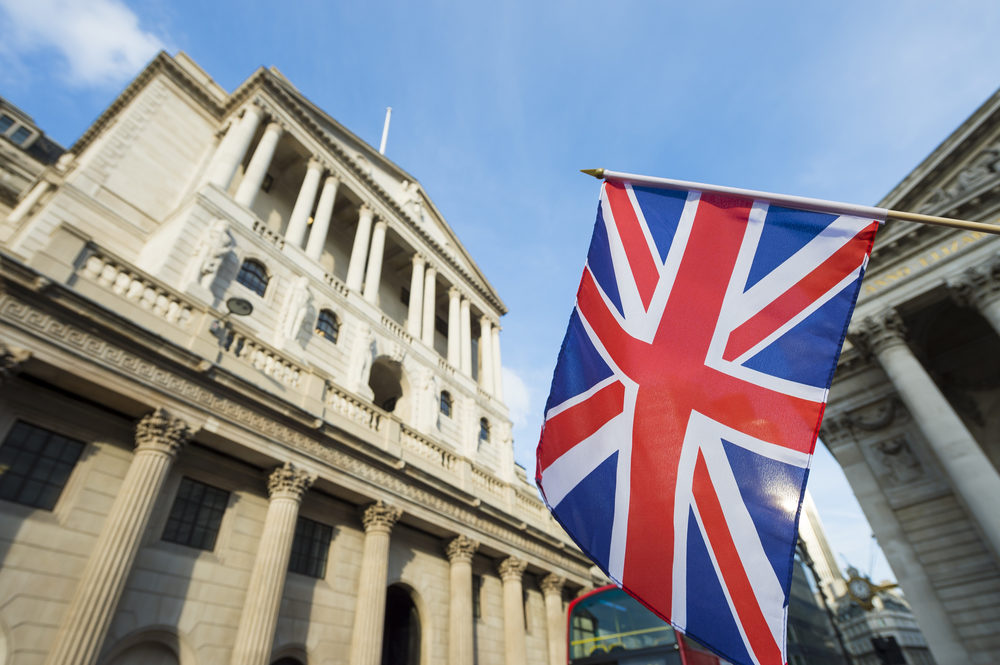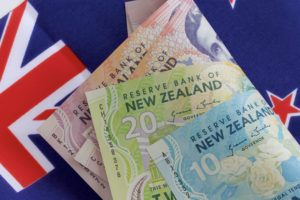Bank of England (BoE) - guardian of the British pound
The Bank of England belongs to one of the oldest and most influential financial institutions on the market. Currently, he is the central bank of Great Britain. It plays a key role in the monetary policy of this country. He is an irreplaceable advisor on the financial affairs of the British government. It is worth taking a closer look at this prestigious body, as it has transformed into the most important bank of England from the treasury of state funds.
Be sure to read: Narodowy Bank Polski (NBP) - Some important facts ...
A brief history of BoE
Let's start with the roots. The bank was established in 1694. Previously, only the Amsterdam Bank was created in the year 1609. Its originator was William Paterson, a Scottish economist and merchant. It was on his initiative that a very simple but effective first state banking system was formed. Initially, he was an institution for the Royal Royal Family only to collect state money. In exchange for permission to take over the government debt, the Bank of England received a monopoly from the government for the provision of banking services. The license included, among others, issuing securities and banknotes.
The war with France in the 1797 year led the United Kingdom to the brink of financial ruin. Here we come across the first major crisis. I am talking about the panic payments from the Bank of England, which led to the fact that the bank ran out of money. This, in turn, led to further consequences. Through 24, low-denomination money was nominated. The lack of sufficient care in printing them was a great opportunity to counterfeit them.
The biggest period of growth, the current BoE owes to the economic boom. We are talking about the times of the industrial revolution and the considerable development of the British Empire. Although the Bank of England was gradually losing its privileges, but in fact mainly due to its dominance in the market, it gained importance. BoE also played an important role in creating the national debt. In the nineteenth century, the money issued by the Bank of England was the strongest currency in the world. It was not until the First World War that the British finance was steeped.
It was only the Peel Act that initiated the gradual liquidation of other British issuing banks, which after the war began to break into the smaller parts of the issuing market, lasting until 1921. It was then that the Bank of England became the only issuing bank in England and Wales. More specifically, 1946 nationalized. It was not until 6 May 1997 that the new Laborers' government granted the Bank of England independence in determining monetary policy. Nevertheless, the bank still remains the property of the British government, which means that it operates within the framework set by it.
Bank of England - Features
The Bank of England operates primarily in accordance with statutory obligations. He is responsible and has competence in setting policy regarding interest rates, stability of the financial system and regulation of banks and insurance companies. Is the main provider of banking services such as lending to other banks and countries. He is independent in terms of his duties and competences. The British government wants it free from any political influence. The main indicator of the bank's activities is therefore the law regulating its activities.
BoE organs
Committee of Non-executive Directors - his tasks include mainly supervision over the implementation of the obligations imposed on the Bank of England. It is part of the Board of Directors and includes all Non-Executive Directors. It is the body responsible for internal supervision.
Directors' Committee - performs the function of the board headed by the Governor. The Queen appoints its members. The Committee of Directors is the decision-making body in determining the policy and strategy that will be most optimal for the Bank and the stability of the financial system.
Monetary Policy Committee - This body is made up of the President and Vice-Presidents of the Bank of England, two Executive Directors and four members appointed by the Chancellor of the Treasury. Its main tasks include defining and creating monetary policy in consultation with the Ministry of Treasury. The Monetary Policy Committee deals with in-depth analysis and research, for example, of the level of inflation or the economic situation in the country.






















![Forex Club – Tax 9 – Settle tax on a foreign broker [Download the Application] Forex Club - Tax 9](https://forexclub.pl/wp-content/uploads/2024/02/Forex-Club-Podatek-9-184x120.jpg?v=1709046278)
![Trading View platform – solutions tailored to the needs of traders [Review] trading view review](https://forexclub.pl/wp-content/uploads/2024/03/trading-view-recenzja-184x120.jpg?v=1709558918)
![How to connect your FP Markets account to the Trading View platform [Guide] fp markets trading view](https://forexclub.pl/wp-content/uploads/2024/02/fp-markets-trading-view-184x120.jpg?v=1708677291)
![How to invest in ChatGPT and AI? Stocks and ETFs [Guide] how to invest in chatgpt and artificial intelligence](https://forexclub.pl/wp-content/uploads/2023/02/jak-inwestowac-w-chatgpt-i-sztuczna-inteligencje-184x120.jpg?v=1676364263)


![WeWork – the anatomy of the collapse of a company valued at $47 billion [WeWork, part II] wework bankruptcy story](https://forexclub.pl/wp-content/uploads/2024/04/wework-bankructwo-historia-184x120.jpg?v=1711729561)
![Adam Neumann – the man who screwed up Softbank [WeWork, part AND] adam neumann wework](https://forexclub.pl/wp-content/uploads/2024/04/adam-neumann-wework-184x120.jpg?v=1711728724)





![How to transfer shares to another brokerage office [Procedure description] how to transfer shares to another brokerage house](https://forexclub.pl/wp-content/uploads/2024/03/jak-przeniesc-akcje-do-innego-biura-maklerskiego-184x120.jpg?v=1709556924)

![The most common mistakes of a beginner trader - Mr Yogi [VIDEO] Scalping - The most common mistakes of a beginner trader - VIDEO](https://forexclub.pl/wp-content/uploads/2024/03/Scalping-Najczestsze-bledy-poczatkujacego-tradera-VIDEO-184x120.jpg?v=1711601376)
![Learning patience: No position is also a position - Mr Yogi [VIDEO] Scalping - Learning patience - No position is also a position - VIDEO](https://forexclub.pl/wp-content/uploads/2024/03/Scalping-Nauka-cierpliwosci-Brak-pozycji-to-tez-pozycja-VIDEO-184x120.jpg?v=1710999249)
![When to exit a position and how to minimize losses - Mr Yogi [VIDEO] Scalping - When to exit a position and how to minimize losses - VIDEO](https://forexclub.pl/wp-content/uploads/2024/03/Scalping-Kiedy-wyjsc-z-pozycji-i-jak-minimalizowac-straty-VIDEO-184x120.jpg?v=1710336731)


















